ADVERTISEMENT
Associated Press Sydney Moore and Sabrina Ootsburg were surrounded by hundreds of college athletes at AthleteCon when news broke that the $2.8 billion NCAA settlement had been approved by a federal judge. In a room full of college athletes, they felt like the only two people who understood the gravity of the situation. “I’m about […]
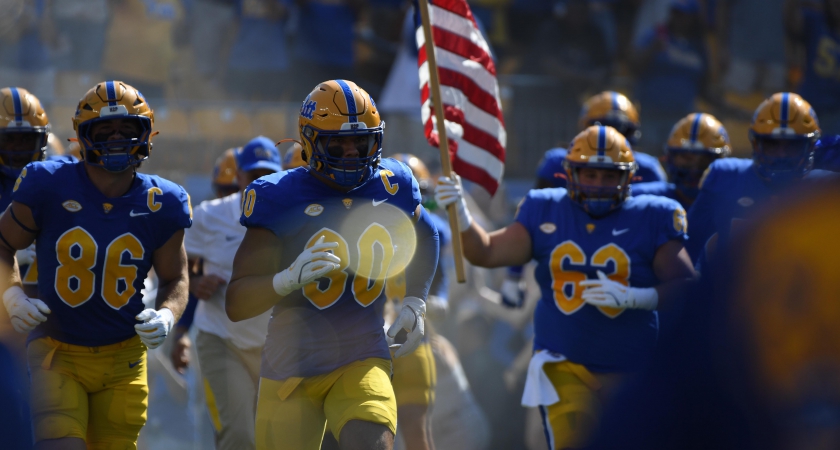

Associated Press
Sydney Moore and Sabrina Ootsburg were surrounded by hundreds of college athletes at AthleteCon when news broke that the $2.8 billion NCAA settlement had been approved by a federal judge. In a room full of college athletes, they felt like the only two people who understood the gravity of the situation.
“I’m about to get paid,” Moore said a Division I football player told her.
“Yes, you are about to get paid, and a lot of your women athlete friends are about to get cut,” she responded.
Moore acknowledged that her response might be a stretch, but the sprawling House settlement clears the way for college athletes to get a share of revenue directly from their schools and provides a lucky few a shot at long-term financial stability, it raises genuine concerns for others.
Schools that opt int will be able to share up to $20.5 million with their athletes over the next year starting July 1. The majority is expected to be spent on high-revenue generating sports, with most projections estimating 75% of funds will go toward football.
So what happens to the non-revenue-generating sports which, outside of football and basketball, is pretty much all of them?
It’s a query that’s top of mind for Ootsburg as she enters her senior year at Belmont, where she competes on track and field team.
“My initial thought was, is this good or bad? What does this mean for me? How does this affect me? But more importantly, in the bigger picture, how does it affect athletes as a whole?” Ootsburg said.
ADVERTISEMENT
“You look at the numbers where it says most of the revenue, up to 75% to 85%, will go toward football players. You understand it’s coming from the TV deals, but then it’s like, how does that affect you on the back end?” Ootsburg asked. “Let’s say 800k goes toward other athletes. Will they be able to afford other things like care, facilities, resources or even just snacks?”
Moore has similar concerns. She says most female athletes aren’t worried about how much – if any – money they’ll receive. They fear how changes could impact the student-athlete experience.
“A lot of us would much rather know that our resources and our experience as a student-athlete is going to stay the same, or possibly get better, rather than be given 3,000 dollars, but now I have to cover my meals, I have to pay for my insurance, I have to buy ankle braces because we don’t have any, and the athletic training room isn’t stocked,” Moore said over the weekend as news of Friday night’s settlement approval spread.
One of the biggest problems, Ootsburg and Moore said, is that athletes aren’t familiar with the changes. At AthleteCon in Charlotte, North Carolina, they said, perhaps the biggest change in college sports history was a push notification generally shrugged off by those directly impacted.
“Athletes do not know what’s happening,” Ootsburg said. “Talking to my teammates, it’s so new, and they see the headlines and they’re like, ‘Ok, cool, but is someone going to explain this?’ because they can read it, but then there’s so many underlying factors that go into this. This is a complex problem that you have to understand the nuances behind, and not every athlete truly does.”
Some coaches, too, are still trying to understand what’s coming.
Mike White, coach of the national champion Texas softball team, called it “the great unknown right now.”
“My athletic director, Chris Del Conte, said it’s like sailing out on a flat world and coming off the edge; we just don’t know what’s going to be out there yet, especially the way the landscape is changing,” he said at the Women’s College World Series in Oklahoma City. “Who knows what it’s going to be?”
Jake Rimmel got a crash course on the settlement in the fall of 2024, when he said he was cut from the Virginia Tech cross-country team alongside several other walk-ons. The topic held up the House case for weeks as the judge basically forced schools to give athletes cut in anticipation of approval a chance to play — they have to earn the spot, no guarantees — without counting against roster limits.
Rimmel packed up and moved back to his parents’ house in Purcellville, Virginia. For the past six months, he’s held on to a glimmer of hope that maybe he could return.
“The past six months have been very tough,” he said. “I’ve felt so alone through this, even though I wasn’t. I just felt like the whole world was out there – I would see teammates of mine and other people I knew just doing all of these things and still being part of a team. I felt like I was sidelined and on pause, while they’re continuing to do all these things.”
News that the settlement had been approved sent Rimmel looking for details.
“I didn’t see much about roster limits,” he said. “Everyone wants to talk about NIL and the revenue-sharing and I mean, that’s definitely a big piece of it, but I just didn’t see anything about the roster limits, and that’s obviously my biggest concern.”
The answer only presents more questions for Rimmel.
“We were hoping for more of a forced decision with the grandfathering, which now it’s only voluntary, so I’m a little skeptical of things because I have zero clue how schools are going to react to that,” Rimmel told The Associated Press.
Rimmel is still deciding what’s best for him, but echoed Moore and Ootsburg in saying that answers are not obvious: “I’m just hoping the schools can make the right decisions with things and have the best interest of the people who were cut.”
___
AP Sports Writer Cliff Brunt contributed.
___
AP college sports: https://apnews.com/hub/college-sports
recommended
While adjusting to the revenue-sharing era in college athletics, coaches have made their frustrations clear. Big 12 coaches called for transparency and clarity last week at the conference’s media days, and Lane Kiffin also shared his thoughts on the post-House v. NCAA settlement landscape. Kiffin called out the rules around revenue-sharing set under the agreement. […]

While adjusting to the revenue-sharing era in college athletics, coaches have made their frustrations clear. Big 12 coaches called for transparency and clarity last week at the conference’s media days, and Lane Kiffin also shared his thoughts on the post-House v. NCAA settlement landscape.
Kiffin called out the rules around revenue-sharing set under the agreement. Schools are now able to directly share up to $20.5 million with athletes, and the first payments went out this month. That figure is set to increase annually under the 10-year settlement.
Rev-share offers cannot be sent to recruits until their senior years of high school, meaning Aug. 1 is a landmark date. As Kiffin looked at where things stand, he sees schools going above that $20.5 million cap. That adds to the questions he has.
“We get a lot of questions like, what’s it like now?” Kiffin said in his remarks Monday at SEC Media Days. “We’ve been operating – we have – under these cap guidelines of what was coming and what it was going look like. I think we’ve done a really good job of that. Obviously means you can’t sign as many players as you would like at times because you have a budget. So we’re obviously hopeful that will be rewarded by doing that.
“I think it’s obvious people aren’t staying within that cap, so I think the whole thing will be, what does that look like? That’s what we don’t know. What does it look like when you don’t and what are the punishments for that? Do you win and that comes later? So that’s remained to be seen, but already got the questions about the cap, what that’s like having to do that. We’ve been doing that for a while, operating on that.”
As the NIL era transformed college sports, Lane Kiffin was outspoken about its impact. He was also quick to make jokes on social media and recalled a quip about Texas A&M’s highly rated recruiting class in 2022 as dollars started flowing.
The cap set by the House settlement is for revenue-sharing from the school. Third-party NIL deals will be vetted by the Deloitte-operated clearinghouse, NIL Go, if they are worth more than $600. That has been the subject of frustration from NIL collectives in light of recent guidance from the College Sports Commission.
But when asked whether there should be a salary cap in college football – something Deion Sanders suggested a week ago at Big 12 Media Days – Kiffin said that’s the goal with the rev-share limit. But he stressed the need for clarity with regard to following the rules.
“I think that’s what we attempted. Doesn’t seem like that’s working very well,” Kiffin said of the $20.5 million cap. “So yeah, I mean, stating the obvious. That was the intention of what was going on because there were so many complaints when NIL started about, okay, everybody has different advantages, and different payrolls. Saw those a couple years ago. I was up here at one of these joking about a luxury tax based on A&M’s spending or whatever it was. So that was supposed to be being fix, and now it’s not.
“Again, we’ve tried to follow the guidelines because that’s what we were told we needed to do. I’m not saying they’re wrong for doing it – I’m not calling anybody out. If the system isn’t solid enough to prevent that, then we really don’t have a system. So you’re not operating on a salary cap.”
Argument over ‘valid buisiness purpose’ for NIL collectives threatens college sports settlement – myMotherLode.com Link 0
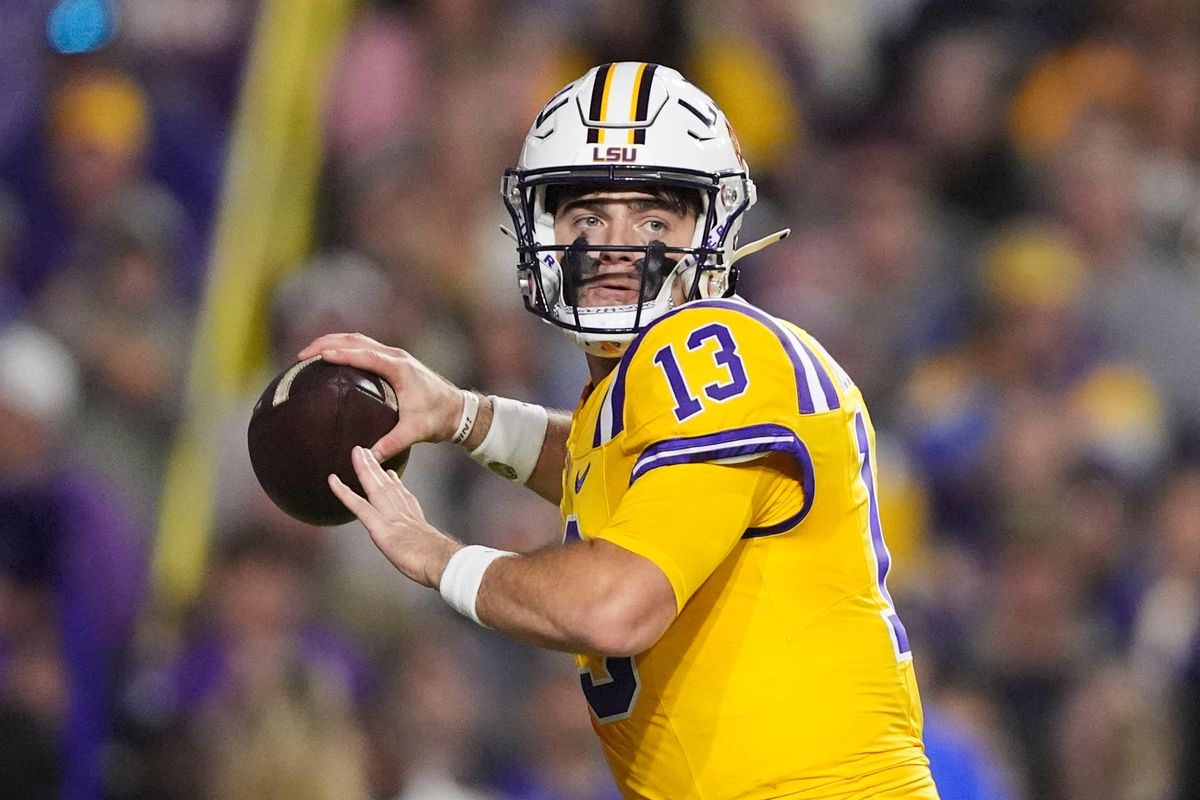
Louisville basketball made it clear over the weekend that their No. 1 target in the 2026 cycle is Tyran Stokes. The Cardinals appeared to be at multiple games of the nation’s No. 1 overall recruit while he competed at the Adidas 3SSB Palmetto Road Championship. However, outside of Stokes, a name that is becoming Kelsey’s […]

Louisville basketball made it clear over the weekend that their No. 1 target in the 2026 cycle is Tyran Stokes. The Cardinals appeared to be at multiple games of the nation’s No. 1 overall recruit while he competed at the Adidas 3SSB Palmetto Road Championship.
However, outside of Stokes, a name that is becoming Kelsey’s No. 2 target in the 2026 cycle is Taylen Kinney, a native of Newport, Kentucky. The Cardinals are all-in on the elite guard after Kinney had a “great” official visit earlier in June.
However, Louisville appears to be in an SEC battle for Kinney as some elite competition and a familiar enemy just entered the race for the 6-foot-2 point guard.
Related: Louisville basketball jumps Kentucky for 5-star PG in massive recruiting twist
According to Joe Tipton of On3/Rivals, Kinney has now scheduled an official visit with John Calipari and the Arkansas Razorbacks. The Razorbacks made their offer to Kinney back in August 2024 and now has an official visit lined up to meet Calipari on September 26.
He has already visited the Cardinals back on June 5 and has also made official visits to Purdue on January 20 and Kentucky on June 24. In addition to his visit to Arkansas, he will also visit Indiana on August 29, Oregon on September 6, and Texas on September 12.
2026 Top-15 overall recruit Tay Kinney, one of the top point guards in the country, has scheduled an official visit to Arkansas, source tells @Rivals. https://t.co/1pPrujtgrS pic.twitter.com/v4HpnvGO97
— Joe Tipton (@TiptonEdits) July 14, 2025
The Cardinals are considered the favorites to land Kinney’s commitment, but these official visits to big-time programs should have Kelsey on alert. Coach Cal will always be a threat to Louisville for 5-star recruits, as he has been recognized as one of the best coaches in college basketball history and is highly skilled at developing college players into NBA superstars.
Kinney visiting these national brand schools and blue-blood programs is not a great sign for Louisville, but it doesn’t mean they are out of the race. Tipton reported that Arkansas is emerging as a legitimate contender, and Kelsey must continue to go all-in on Kinney.
If the Cardinals can win Kinney’s commitment, it would be a massive first domino to fall their way, and could lead to players like Stokes and other 5-stars to commit. It is reported that Kinney plans to announce his commitment sometime before fall.
Kinney has earned over 29 offers, and Louisville must pay what it takes to bring him to the Cardinals. Kinney ranks as the No. 1 point guard in the 2026 cycle and ranks as high as No. 11 in the nation.
However, with programs like Texas, Arkansas, Kentucky, Oregon, and others earning official visits from Kinney, it is clear the 5-star guard is going to be worth even more money than Kelsey thought. Louisville is hoping to land Stokes, as they are the favorites, but with Kinney taking more official visits, it may become clear that it will be challenging to secure both recruits’ commitments and meet their financial obligations.
Related: 2 Dream, 2 reach, 2 realistic 2026 5-star targets Louisville basketball could land
For all the latest on Louisville basketball’s offseason and recruiting, stay tuned.
The Basketball Tournament (TBT) 2025 is set to tip off this Friday July 18th, and once again should be an exciting dose of basketball in the dog days of summer. Since it first began in 2014, TBT has quickly grown into one of the premier basketball events of the offseason. This year’s event will feature […]

The Basketball Tournament (TBT) 2025 is set to tip off this Friday July 18th, and once again should be an exciting dose of basketball in the dog days of summer. Since it first began in 2014, TBT has quickly grown into one of the premier basketball events of the offseason. This year’s event will feature 61 teams competing in a single-elimination bracket, with a $1 million winner-take-all prize.
While TBT features a mix of current and former professional players, the event is deeply rooted in, and has really grown because of its strong ties to the college basketball world. Many of the participating teams are college alumni squads, made up of former players from their programs. With its single-elimination format and rosters full of familiar faces from the college basketball world, TBT is the perfect offseason remedy for college hoops fans.
The tournament will once again feature the Elam Ending, which is a unique format that has gained traction since it was first used in TBT in 2017. Since then, it has been adopted in events such as the NBA All-Star Game, NBA G League, and Unrivaled.
Under the Elam Ending rules in TBT, the game clock is turned off at the first stoppage at or under four minutes remaining in the fourth quarter. At this point, a target score is set that is 8 points more than the leading team’s score (e.g. If score is 78-72, Target Score = 86, first team to 86 points wins). Under this format, every contest ends on a “game winner” and it eliminates the long, drawn-out foul and free throw fest that can take place near the end of games, a part of college basketball that has become highly criticized as of late.
Now, assuming you’re here because you love college hoops, here are the teams with college basketball affiliations competing in TBT 2025.
This year’s field is divided into eight regions, each hosted by a college alumni squad. All regional hosts will have home-court advantage throughout the entire tournament.
First-round games will tip off Friday and Saturday (7/18–7/19). Following rounds will take place over the next two weeks, with the championship game scheduled for August 3rd.
Select games will be broadcast on FOX, FS1, and FS2, while most of the action will be available to watch on YouTube.
Players’ associations for the NFL, NBA, Major League Baseball, NHL and MLS issued a joint statement Monday urging Congress to reject proposed legislation that would grant the NCAA and its members an antitrust exemption to address NIL issues. The statement was in response to the Student Compensation and Opportunity through Rights and Endorsements (SCORE) Act, […]
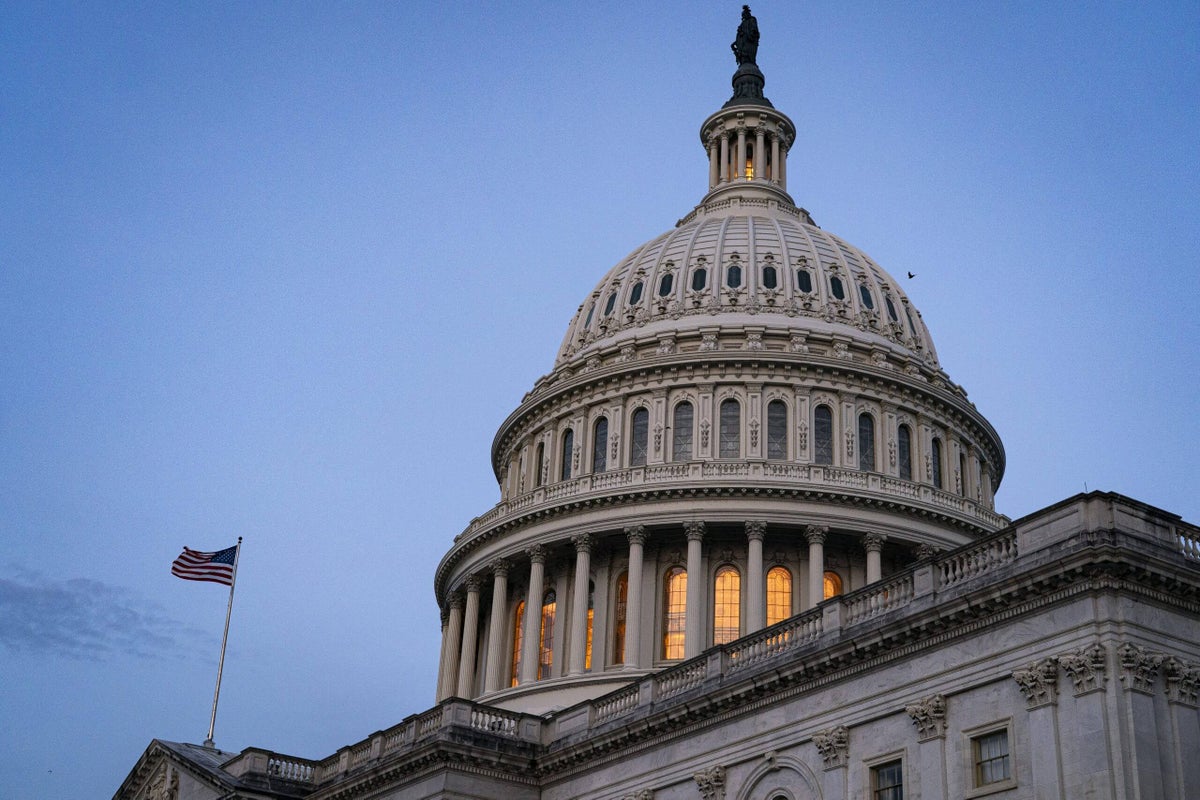
Players’ associations for the NFL, NBA, Major League Baseball, NHL and MLS issued a joint statement Monday urging Congress to reject proposed legislation that would grant the NCAA and its members an antitrust exemption to address NIL issues.
The statement was in response to the Student Compensation and Opportunity through Rights and Endorsements (SCORE) Act, introduced last week by members of the House Energy and Commerce Committee. A markup on the bill is scheduled for Tuesday morning.
In their letter, the players’ associations warned that an antitrust exemption would permit the NCAA and its members to “collude to harm athletes.”
“Whatever progress the athletes have made has been a result of their use of the antitrust laws,” they wrote. “The SCORE Act would take that weapon away from them.”
The proposed legislation from seven Republican and two Democratic sponsors prevents athletes from obtaining employment status and mirrors many of the terms from the recent House vs. NCAA settlement. It would officially end most administrative restrictions on athletes’ NIL compensation, but it allows schools and conferences to establish what is and isn’t permissible. Should the federal legislation pass, it would override current state NIL laws, which vary from state to state.
Earlier Monday, two members of Congress from the state of Washington, Democratic Sen. Maria Cantwell (D-WA), Ranking Member of the Senate Committee on Commerce, Science and Transportation, and Republican Rep. Michael Baumgartner, issued a similar statement urging the House committee to delay the markup until there are significant changes.
“The bill appears to be a product of the richest conferences to cement into place the current power structure in college athletics that would leave only the wealthiest schools able to compete at the highest levels of college athletics,” the statement said.
If you thought the dissolution of the Pac-12 was a heist, the SCORE Act is the National Championship of all heists. This legislation is a power grab by the two biggest conferences that will leave athletes, coaches, and small and mid-sized institutions behind. My letter with… pic.twitter.com/qVX11z2h1y
— Sen. Maria Cantwell (@SenatorCantwell) July 14, 2025
All of the Power 5 conferences previously issued a statement endorsing the SCORE Act.
“In the absence of federal standards, student-athletes and schools have been forced to navigate a fractured regulatory framework for too long,” they wrote. “Following the historic House settlement, this bill represents a very encouraging step toward delivering the national clarity and accountability that college athletics desperately needs.”
Last week, the NCAA said in a statement that it “has made long overdue changes, mandating health and wellness benefits and ushering in a new system for Division I programs to provide up to 50 percent of athletic department revenue to student-athletes, but some of the most important changes can only come from Congress.”
“This bill reflects many student-athletes’ priorities, and the NCAA is committed to working with Congress to build a bipartisan path forward that ensures the long-term success of college sports and the ongoing opportunities they provide to young people,” wrote Tim Buckley, the NCAA’s senior vice president of external affairs.
SEC commissioner Greg Sankey also praised the bill Monday.
“I think what’s happening in college athletics is a nonpartisan issue, but using the typical nomenclature, to have members of both of our major political parties willing to step out and introduce the SCORE Act, is a positive step,” he said.
The players’ associations’ letter noted that only two industries in the United States have antitrust law exemptions: railroads and Major League Baseball (partially).
“The NCAA should not have a blank check to impose (its) will on the financial future of over 500,000 college athletes,” they wrote.
Justin Williams contributed to this story.
(Photo of Capitol Building: Al Drago / Getty Images)
Bucknuts.com’s Steve Helwagen hosted his weekly Chat on Monday night on The Front Row message board. Check out the transcript below. Programming Note: Steve will again join Ohio State Buckeyes Live at 11 a.m. Wednesday. Check out The Front Row for access details after 11 a.m. on Wednesday. ButlerBuck: Players may want all they can […]
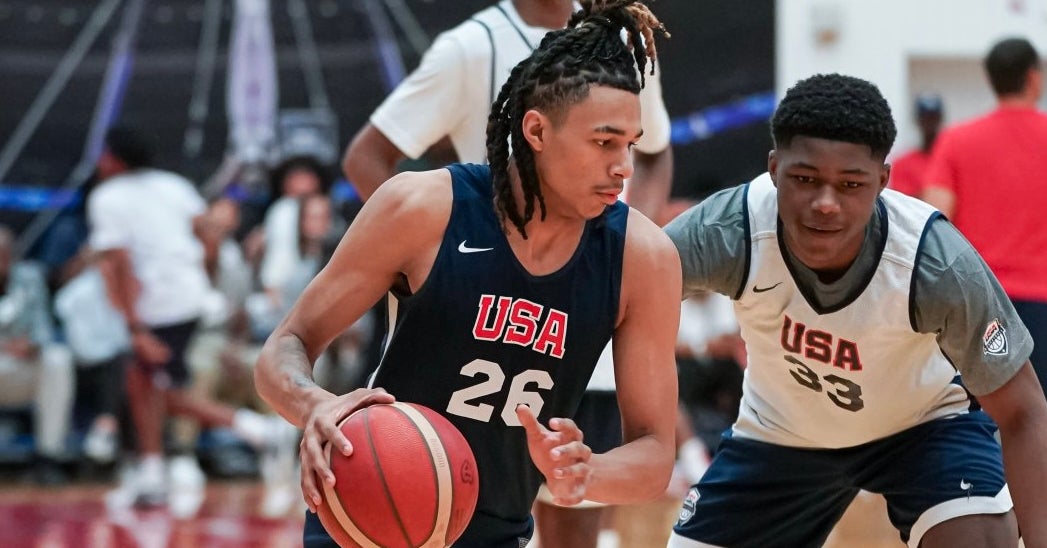
Bucknuts.com’s Steve Helwagen hosted his weekly Chat on Monday night on The Front Row message board. Check out the transcript below.
Programming Note: Steve will again join Ohio State Buckeyes Live at 11 a.m. Wednesday. Check out The Front Row for access details after 11 a.m. on Wednesday.
ButlerBuck: Players may want all they can get as a HS kid.
For hoops, Anthony Davis and Cooper Flagg would have been the #1 draft pick whether they went to a blue blood or not.
For football, getting that development during college is more important since the NFL watches you for 3 years.
Will kids get that idea/does OSU use that as a basketball recruiting pitch from OSU or another pigskin blue blood?
OSU hoops would use that to recruit those 5* players….you’ll be #1 wherever you go. You just need to get the most playing time you can. You’ll get all the minutes you can play here. At UK and Duke, maybe not
Helwagen: Yeah, lot of ifs in there. Every kid’s upbringing, wherewithal and recruitment is different. Some have to have as much as they can get their hands on as soon as possible. Some are interested in being one and done and on to the league. Some are content to play the long game to prolong their development and maximize their pro value.
So, yeah, you can look at it and say Ohio State can help you get there. But if you watched the NBA Finals, here were the schools of the starters:
Pacers: Pascal Siakam (New Mexico State), Aaron Nesmith (Vanderbilt), Myles Turner (Texas), Andrew Nembhard (Gonzaga), Tyrese Haliburton (Iowa State)
Thunder: Chet Holmgren (Gonzaga), Jalen Williams (Santa Clara), Isaiah Hartenstein (Germany/Lithuania), Lu Dort (Arizona State), Shai Gilgeous-Alexander (Kentucky)
Only one real blueblood there. You can get there from anywhere, so why not Ohio State? Of course, will need Ohio State to be competitive in the pay department.
foxr2001: Don’t know if you can answer this and has nothing to do with OSU. BTN has aired a few US women’s volleyball games, which has nothing to do with the B1G. I can only imagine its some reciprocal agreement with FOX that they (BTN) air events when FOX doesn’t have room on their schedule or something like that. Any intel on why these are airing on BTN?
Two other completely different questions for you. The Columbus Dispatch said that McGuff was able to drive again, presumably meaning that his license was temporarily suspended. The article didn’t go into much detail about his current status though. Has his DUI arrest already been processed and if so, what penalty(ies) did he receive? Did the university do anything to him or are they going to like suspend him for a few games? Hey, maybe OSU will suspend him in the MIDDLE of the non-conference schedule when we are playing our easiest two games!
Other question, no one here at Bucknuts has mentioned Cleveland getting an WNBA franchise. I imagine you are a Cavs fan, how do you feel with the city sharing the court with a women’s team? Do you think, with the improved success in the WNBA that this franchise will survive, unlike Cleveland’s earlier WNBA franchise?
Thanks Steve.
Helwagen: I was not aware BTN was airing women’s USA volleyball events, but it makes sense if FOX needs an outlet that they do that. ESPN puts some NCAA events it can’t get on ESPN or ESPN2 on SEC Network (usually involving an SEC team). Big Ten is big in volleyball and maybe they rationalized some of the players were from Big Ten schools.
Have not heard anything about McGuff or his status. I assume the judge in his case has granted him work driving privileges. I assume if Ohio State is going to suspend him, it will happen before the season starts. No idea when his next court appearance would be. I will try and check on that. Not sure how he beats the rap if they play the video at trial, unless he can prove he was drugged somehow.
Don’t really have a thought about the WNBA in Cleveland. It seems the league has 10-12 needle movers who draw crowds. People will come there to watch Caitlin Clark and some of the others. But to win and contend you need stars. Those are hard to come by. Good luck and, I agree, I hope it goes better than the last time. Sophie Cunningham’s comments about why would anybody want to play in Cleveland were not the least bit helpful. LOL


Pet fitness and wellness trends for a healthier and happier dog


WAC to Rebrand to UAC, Add Five New Members in 2026


A new era of Dickinson hockey begins behind the bench – The Dickinson Press


Why Cosmetics are Making Up for Lost Time in Women’s Sports


Florida assault survivor shares hope for change with new mental health law
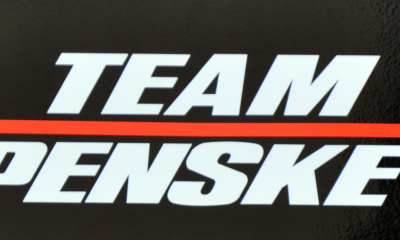

Team Penske names new leadership


NASCAR This Week – Patriot Publishing LLC


How to Market FAST Sports Content to New Audiences


New 'Bosch' spin


🚨 BREAKING: NBA MVP Shai Gilgeous-Alexander signs the RICHEST annual salary in league history